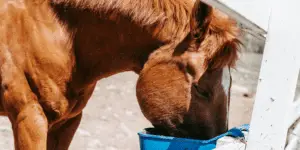
Which Minerals Should I Feed My Horse?
Minerals are of vital importance for horses to ensure health and optimal performance. They play
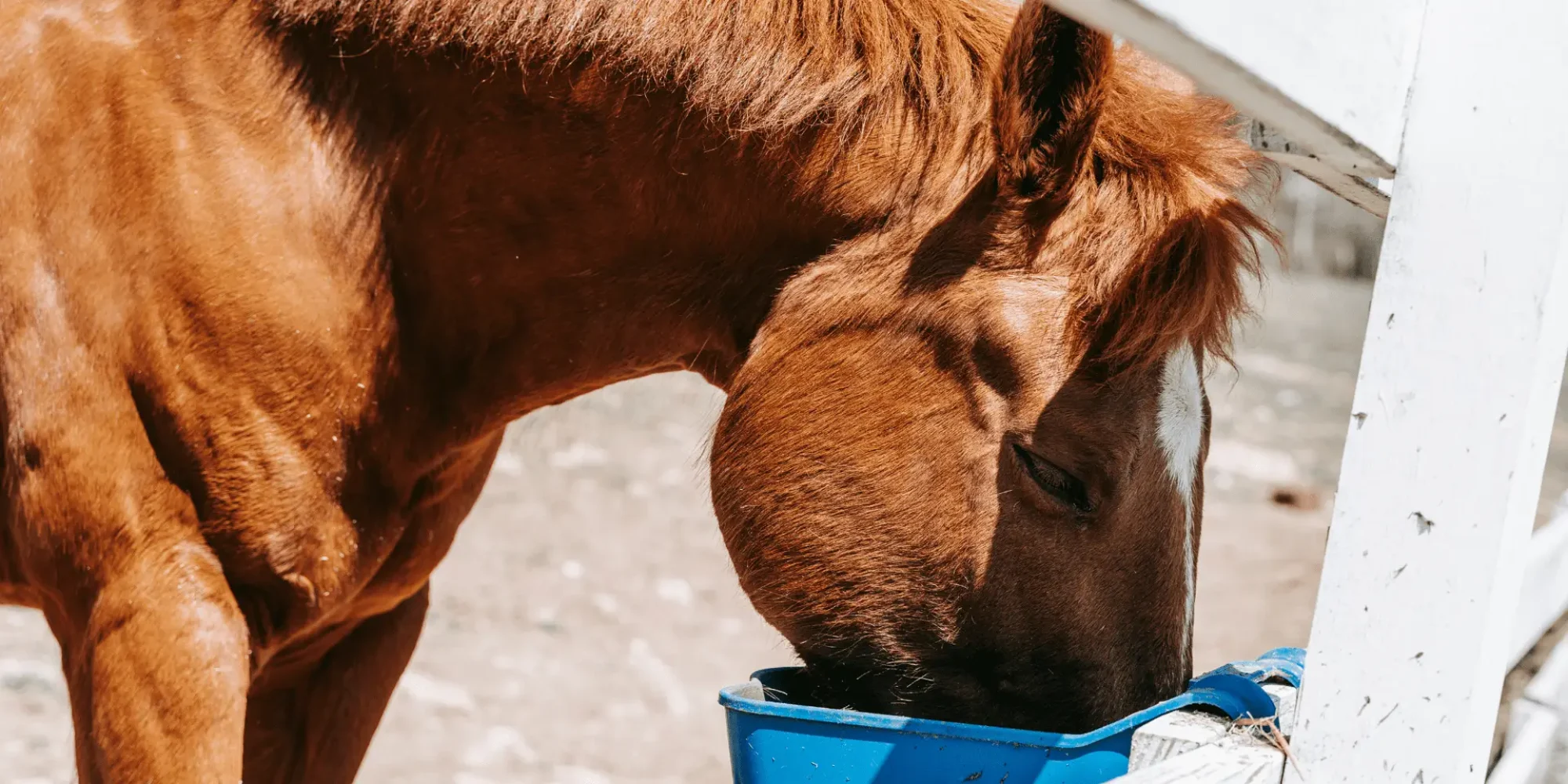
Minerals are of vital importance for horses to ensure health and optimal performance. They play a crucial role in maintaining a functional metabolism, bone and tissue development, as well as supporting the immune system. In this blog post, you will learn about trace minerals and major minerals.
Trace minerals are minerals that horses require in very small quantities, yet they are essential for their health. Here are some of the most important trace minerals for horses:
Cobalt is a key element for the formation of Vitamin B12, which is crucial for energy, metabolism and blood formation. A cobalt deficiency can lead to anemia and other metabolic disorders.
Copper is crucial for the formation of connective tissues, bones, and hemoglobin. It also plays a role in maintaining a healthy immune system. A copper deficiency can lead to anemia, bone and joint problems, as well as hair and coat changes.
Iron is an essential component of hemoglobin, which is responsible for oxygen transport in the body. An iron deficiency can lead to anemia, fatigue, and reduced performance.
Selenium is a potent antioxidant and plays a crucial role in supporting the immune system. It is also important for muscle function and reproduction. Selenium deficiency can lead to muscle problems, irregular cycles in mares, and a weakened immune system.
Sodium is an electrolyte essential for fluid balance and nerve function. Horses lose sodium through sweating and therefore require an adequate intake. A sodium deficiency can lead to dehydration, muscle cramps, and reduced performance.
Zinc is important for tissue growth and development, immune system function, and wound healing. A zinc deficiency can cause skin problems, reduced growth, and increased susceptibility to infections.
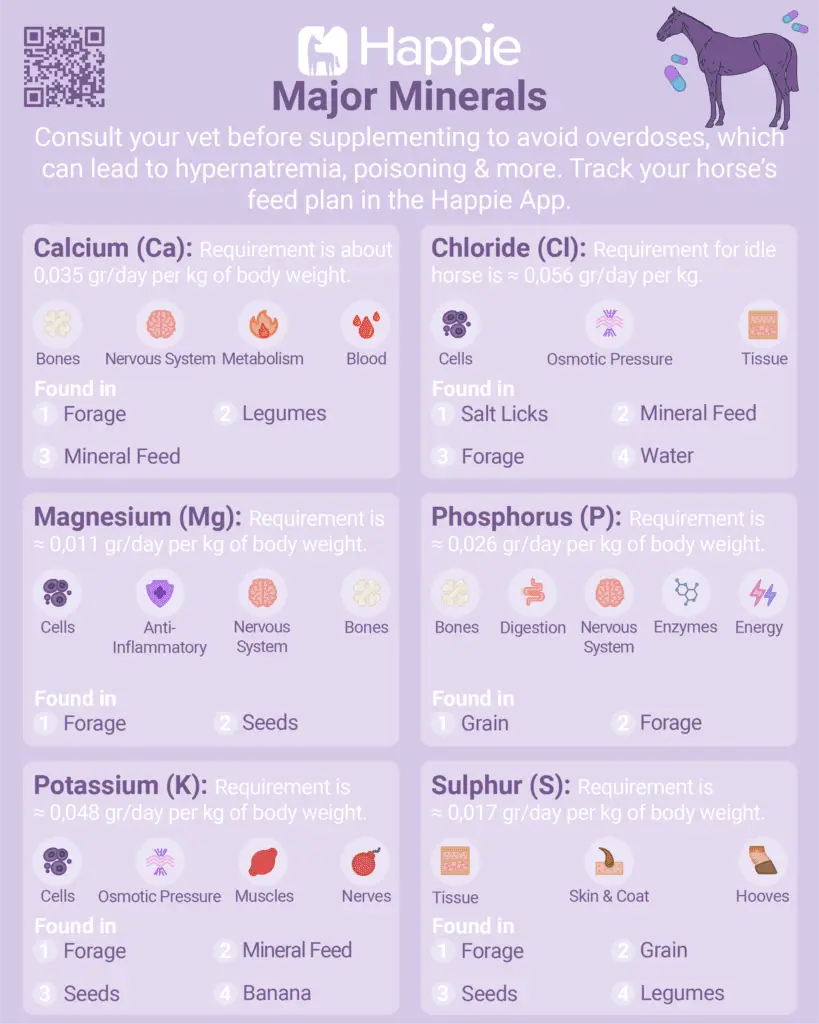
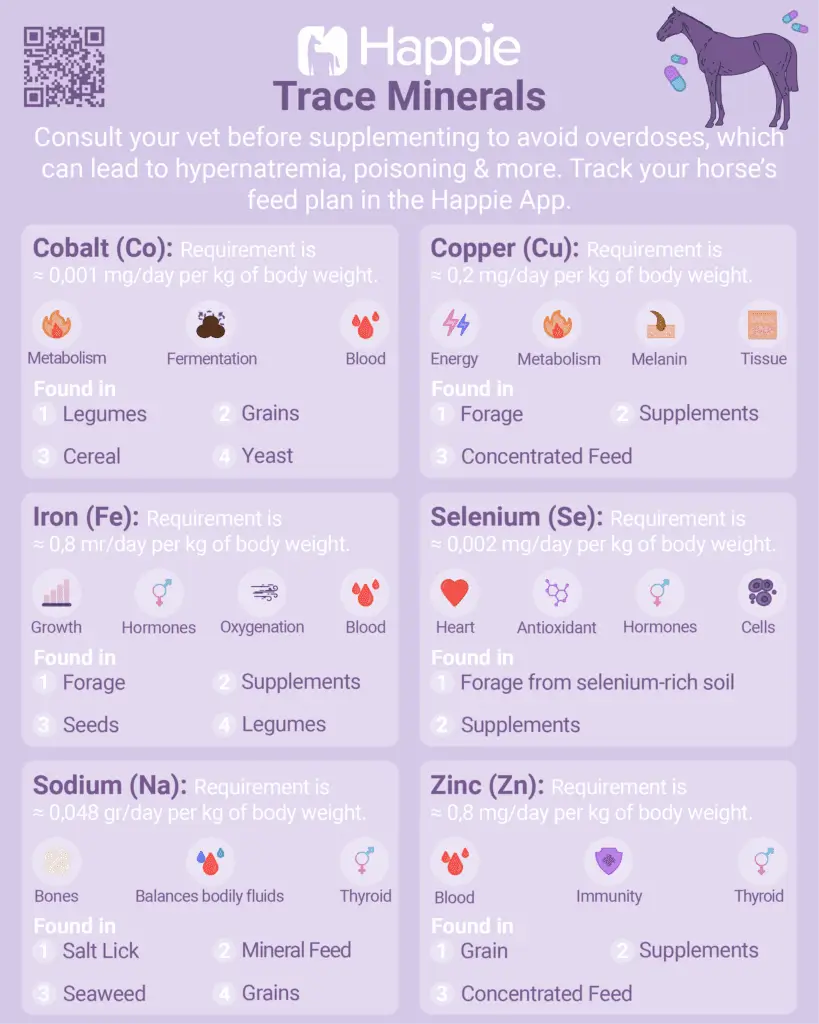
In contrast to trace minerals, horses require major minerals in larger quantities. These minerals are crucial for various body functions:
Calcium is the main component of bones and teeth. It also plays a role in muscle contraction, blood clotting, and signal transmission between nerve cells.
Chloride is an electrolyte essential for fluid balance and digestion. It also helps maintain the acid-base balance in the body.
Magnesium is involved in more than 300 enzymatic reactions in the body and plays a role in muscle contraction, nerve function, and energy production. A magnesium deficiency can lead to muscle tremors, nervousness, and reduced performance.
Phosphorus is a major component of bones and teeth and plays a crucial role in energy production. An imbalance between calcium and phosphorus can lead to bone problems.
Potassium is an electrolyte essential for muscle contraction, nerve function, and fluid balance. A potassium deficiency can cause muscle weakness, fatigue, and heart problems.
Sulfur is a component of amino acids and is important for the formation of keratin, which strengthens hair, hooves, and skin structure.
A balanced supply of trace minerals and major minerals is essential for the health and performance of horses. Horse owners should ensure that their horses receive a balanced diet that contains all the necessary minerals in appropriate amounts. Regular veterinary check-ups and advice from professionals can help identify and address deficiencies, ensuring the optimal health of the horses. Good-quality forage and feed offers sufficient minerals and does not require supplementation, avoid overdoses by consulting your vet first.
Create your horse’s feed plan in the Happie Horse App and keep track of your horse’s nutrition! Additionally, you can assign the “Feeding” task to other individuals!
Happie supports you and your horse’s health!
Download the Happie Horse App and receive a 7-day free premium trial!

Minerals are of vital importance for horses to ensure health and optimal performance. They play

Expert Advice: Kim Lina Pethahn, an independent feed consultant, wrote this article. Which are non-toxic
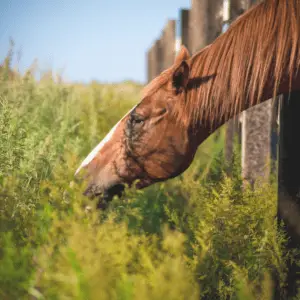
Expert Advice: Kim Lina Pethahn, an independent feed consultant, wrote this article. Common Symptoms and

Vitamins are not only important for us humans, but also for your horse. That’s why
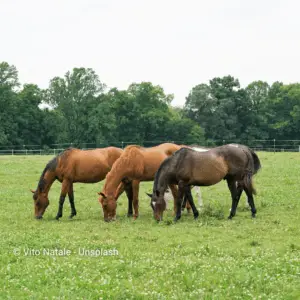
We have summarised everything you need to know about spring turn out to keep your
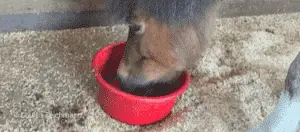
Expert Advice: Kim Lina Pethahn, an independent feed consultant, wrote this article. Offering the Necessities